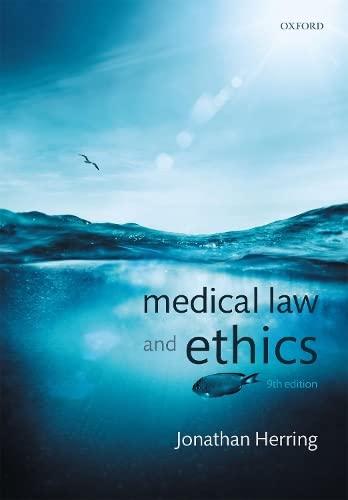Answered step by step
Verified Expert Solution
Question
1 Approved Answer
1. Google claims that they do not owe taxes to France because the office that they operate there is not subject to taxation. What type
1. Google claims that they do not owe taxes to France because the office that they operate there is not subject to taxation. What type of office is that? a) A representative office b) An Agent c) A branch d) A subsidiary 2. In order to not be subject to tax in a country where it is operating, a corporation: a) Must have less than 100 workers b) Must have their headquarters in a country that has a tax treaty with the host country c) Must not be engaging directly in commercial activities d) Must be operating thru a daughter company 3. A State that subjects its residents and non-residents to tax on their income generated within that country follows the: a) Residency principle b) Source principle c) Nationality principle d) Double taxation principle 4. A country that charges a higher tax rate percentage on higher income brackets uses a: a) Flat tax rate system b) Progressive rate system c) Credit system d) Exemption system 5. Having a great deal of debt on a company's books, the interest on which is deductible,( reducing the company's profit tax owed) is known as: a) Thin capitalization b) Transfer pricing c) Tax evasion d) Transformation of Income 6. In order for transfer pricing to be allowed in a way that benefits a company, a country will demand that one of the following principles is followed. Which one? a) The unitary business principle b) The Tax sparing principle c) The force of attraction principle d) The arm's length principle 7. Examples of anti-competitive business practices would inciude all of the following except: a) Market dominance b) Price fixing c) Dividing markets d) Tying agreements 8. 'Defining a market' is important in business law because A) Companies do not want to waste marketing budgets on the wrong target audience B) Business must understand threats C) Governments can prove market dominance, and take action D) None of the above 9. Proving that two products are part of the same market is possible by proving all of the following except which? a) Functional interchangeability b) Whether one could be substituted for the other by consumers c) Whether vertical restraints are in place d) If sales of 'X' increase following a price rise of 'Y' 10. If a company with market dominance priced its products below its cost of producing such products, it could be accused of: a) Dumping b) Predatory pricing c) Penetration pricing d) Cost based pricing 11. .You have approached the General Manager of a local company for a donation for the Queen Wilhelmina Fonds Against Cancer. The GM is quite sympathetic to the cause, and agrees to become a major sponsor of an upcoming event. Some months before the event, he is fired from his position due to poor financial performance . The new (interim) manager, when contacted, refuses to honor the commitment of his predecessor. Could the company be sued for breach of contract? a) No, because the previous General Manager lacked capacity to enter a valid contract b) Yes, because there was an intent to be legally bound c) No, because the element of consideration is missing d) No, because this is an example of misrepresentation 12. A private, closely held company differs from a public company in that A. no corporate tax is paid B. the shareholders are personally liable for business debts C. transfer of shares is tightly controlled D. shareholders do not have voting rights 13. You are interested in starting a business venture, and need to choose a legal form in which to operate. Your main concern is to not have any personal liability for business debts. You should therefore choose which of the following? : a) A sole proprietorship b) A limited partnership, where you are the general partner c) A private limited company d) A general partnership 1. What do we mean by vicarious liability? 2. What are three determining factors as to whether someone is in breach of duty? 3. What is the "but for" rule? 4. What are 'intervening factors" ? Give three examples. 5. What is an exclusion clause? Is it enforceable? 6. Please give some examples of express terms in a contract, and implied terms. 7. How can a contract be discharged? 8. What are the essential elements of a contract? 9. Why are governments interested in 'defining a market'? 10. What is transfer pricing? 11. What is thin capitalization? 12. Please give examples of at least three express terms in an employment contract and implied terms. 13. Please describe and explain the four types of intellectual property. 14. Please explain the type of contracts that one can use to bring on additional staff to a company
Step by Step Solution
There are 3 Steps involved in it
Step: 1

Get Instant Access to Expert-Tailored Solutions
See step-by-step solutions with expert insights and AI powered tools for academic success
Step: 2

Step: 3

Ace Your Homework with AI
Get the answers you need in no time with our AI-driven, step-by-step assistance
Get Started


